Saka and the 30k Minute Cliff?
We should enjoy the years that Saka has given us (and still has) but also probably not worry too much about the inevitable decline just yet. Plus more in this international break podcast.
There was a great discussion on the Cannon Stats discord (you should join, it is fun and free) about Bukayo Saka’s cumulative minutes and what that means for his future. It was so good that Adam and Scott decided to go even longer on that topic in today’s podcast.
In this meta-focused episode, Scott and Adam shake off international break boredom with high-level chats on Arsenal’s stars. They dive into Bukayo Saka’s heavy minute load and career longevity, unpack the randomness of injuries (with fresh Arteta quotes), debate if Martin Ødegaard is “injury-prone,” and reflect on Mikel Arteta hitting his 300th match amid lingering fan discontent. Expect tire metaphors, RAF pilot stories, and optimistic vibes about Arsenal’s title push—despite the banter from rivals.
Add the RSS Feed Here (copy the link) to the podcast player of your choice or click here to listen to the episode directly in your browser, through apple, or below through Spotify:
On the Saka minutes, here is a look at how his minutes have come starting with his debut:
He’s been among the highest played players at each age, but he’s also been among the best players, and the best players play a lot.
What this might mean is that given that the general trend is that players have about 30-35k peak league minutes in them that we are at about the halfway point with Saka. Here are some examples that I pulled that I think help illustrate this trend:
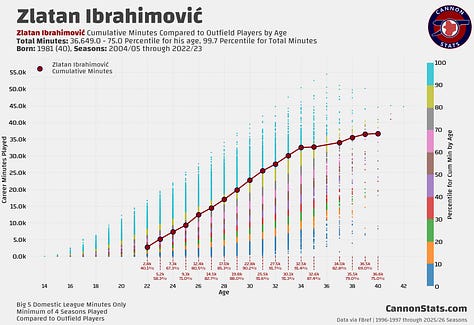
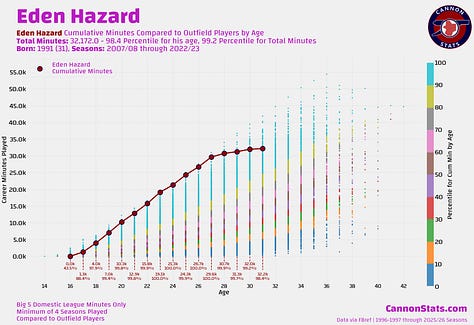

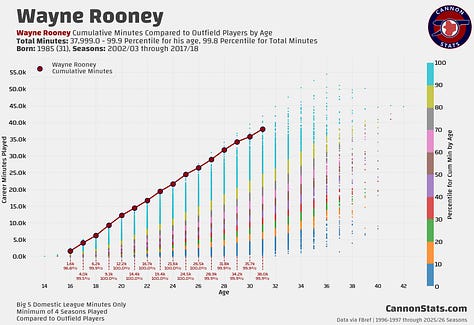
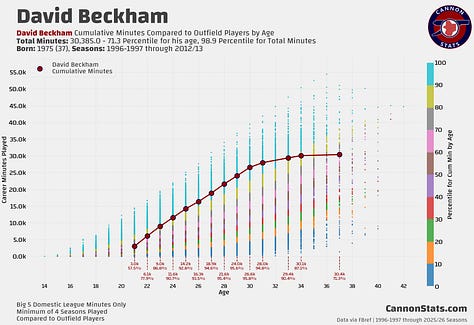
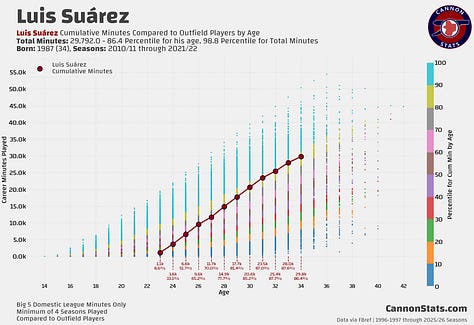

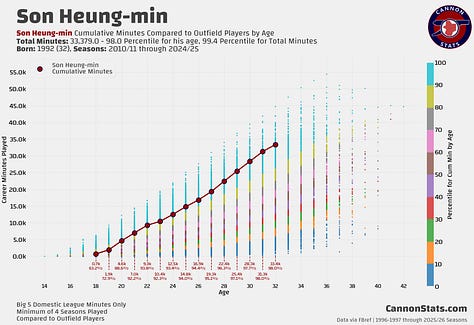
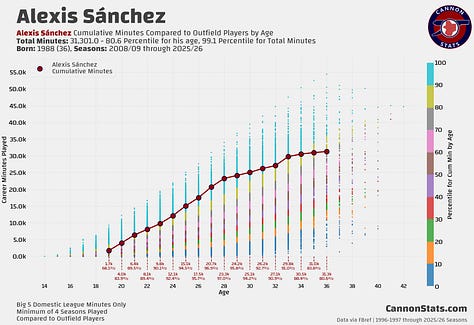
There are exceptions to this and we can hope that Saka is that but this is where things are at for right now.
Below here are the main quotes from Arteta on injuries that we mentioned on the podcast.
Areta on predicting injuries:
“There is a lot of randomness in an injury that we don’t know,” said Arteta. “Sometimes I’ve been with a player that I wanted to put the finger into something that it was very clear.
“And then I realised three months later that he had a problem with his wife or he didn’t sleep or his kid [didn’t sleep] for three days, and then he got injured, and I say: ‘I’ve been scratching my head for one month trying to do that, and then I found out that this was the real reason’.
“There are a lot of factors we’re trying to control, dominate and be aware of what we can predict. But unfortunately, this is sport, football and life, and it’s not that easy.
Arteta on preventing injuries:
“There is a push when people are trying to accelerate. So to replicate that in training, especially when a player is playing every three days, is very, very difficult.
“The thing is that you have to replicate all the previous actions. You have to replicate the motion, the stress level, your cortisol level, your mental state, the results.
“It’s about replicating the context. I can replicate to go and say I predict that these shares are going to go up three per cent. That’s great. But would you put the money in real or would you go online and do it? It’s very different.”
“For example, when Gabi Magalhaes gets injured, a lot of people say he comes from Brazil and does that,” said Arteta.
“But Gabi had to chase 50 metres backwards chasing against Adama Traore. If, instead of Adama Traore, that was Emile Smith Rowe, with all respect, probably he doesn’t pull his hamstring.
Love the pod? Subscribe on your fave platform, rate/review, and join the Discord for debates. Feedback? Reply to our newsletter or hit us on social media.
Yeehaw!



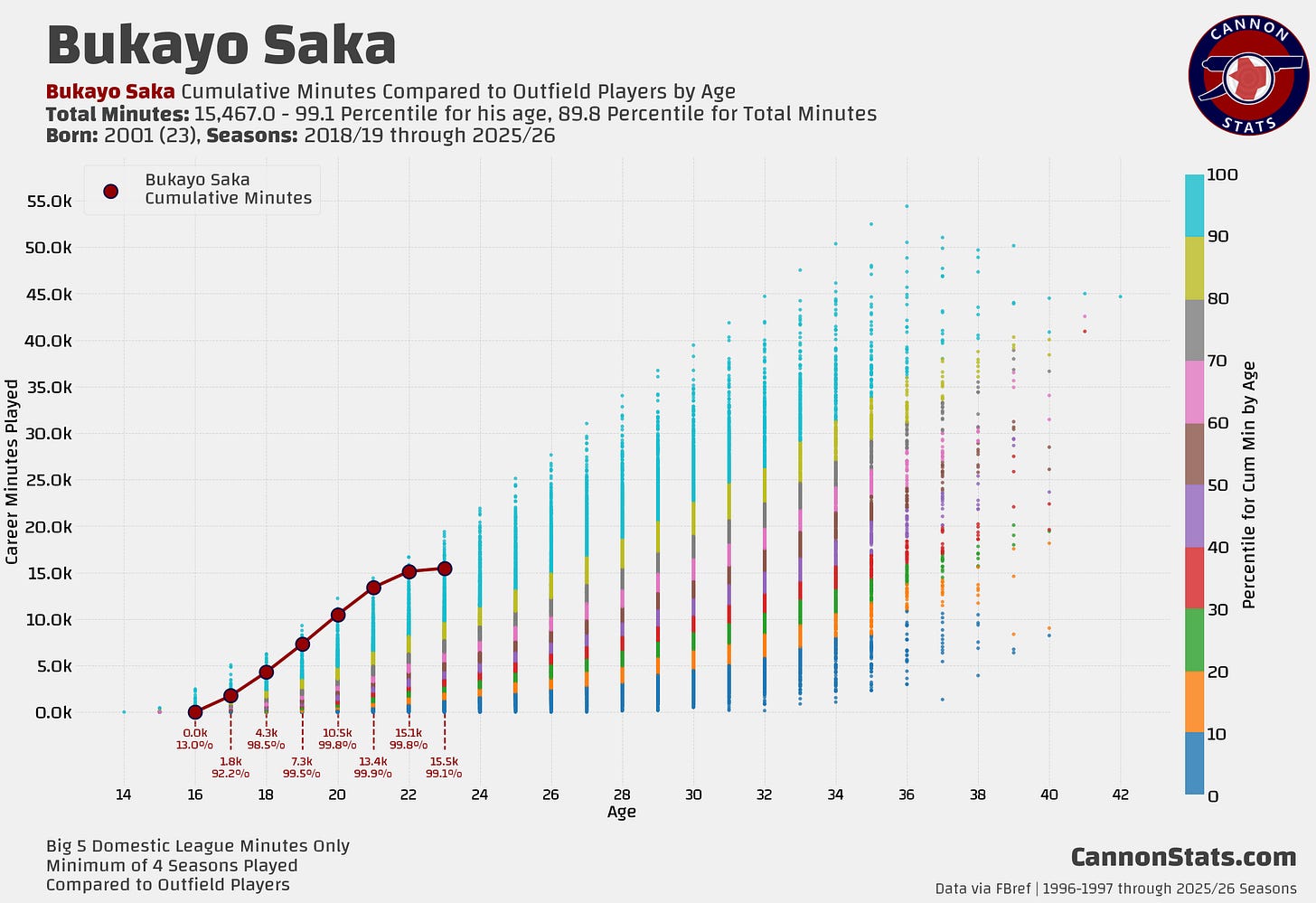
Since Saka is a generational talent, wouldn't the appropriate comparison be to look at players like Messi or Ronaldo or Iniesta etc to see how his minutes compare?